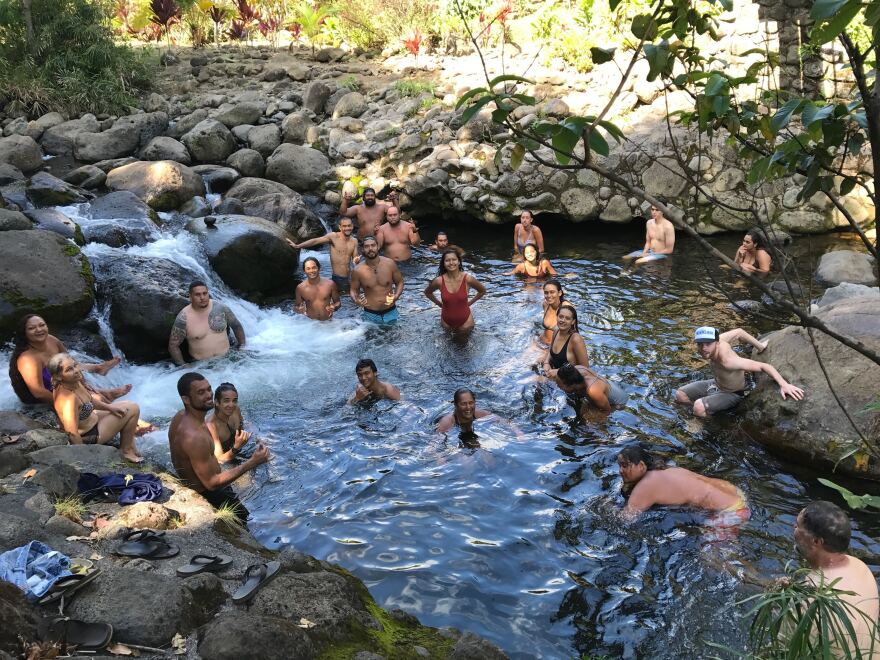A recent federal hate crime ruling against two Native Hawaiian men from Maui is sparking discussions on the broader societal context in Hawaiʻi that enables hate and bias in the first place.
The 2014 incident involved two men brutally beating a white man who had recently moved to the isolated Hawaiian fishing village of Kahakuloa.
Kahakuloa is a rural Hawaiian fishing and farming community in northwest Maui. Families here have been able to live on the same parcels of land for hundreds, if not thousands of years, said UH Mānoa Hawaiian Language Professor Kapā Oliveira.
For Oliveira, Kahakuloa is her homeland.
"Kahakuloa is my kulaiwi. ʻĀina has been passed down in my family, generation after generation, and this happened even before land privatization was introduced in Hawaiʻi in the mid-1800s," Oliveira said. "Therefore a majority of the parcels in the valley had never been bought or sold."

While she doesnʻt condone violence, Oliveira said she sees the 2014 assault of a white man who had just moved to the valley by two Kahakuloa men as a clash of cultural values.
"Our relationship to the ʻāina differs from those who purchase their land. For us, our kupuna are buried right outside our front door," she said.
"And so the ʻāina itself is considered ʻohana. We take care of the land as if it’s ʻohana and we don’t see it as a commodity to be bought or sold."
Oliveira, like many in the Native Hawaiian community, fears the federal court ruling has broader repercussions that go beyond a hate crime.
"What I'm most concerned about is that we as kanaka may become fearful of expressing ourselves using our own language in our own homeland. And I fear that the use of Hawaiian words like 'haole' will be weaponized against us," Oliveira said.

The term “haole,” which in the Hawaiian language can mean foreigner or white person, was considered a racial slur in the case. But Professor Judy Rohrer, author of the book “Haole in Hawaiʻi,” argued the term “haole” has less to do with race and more to do with power dynamics rooted in Hawaiʻi's history of colonization.

"It names that colonial settler whiteness," Rohrer said. "It calls it out. It is a way for Native Hawaiians and local folks to name this form of behavior and also the structures of settler colonialism."
She said the focus on this hate crime as an isolated event ignores the societal context that creates, enables, and perpetuates hate and bias in the first place. If we truly want to reduce hate in Hawaiʻi, Rohrer said, we must learn this history and address the ongoing impacts of settler colonialism.
"We need to figure out how to deal with that. It’s not something that just happened back in the day when Cook was lost and showed up. Or when the kingdom was overthrown," she said.
"But it continues today, right? There’s the taking of the land. There's increased property taxes from the people who turn ʻāina into property, and then you have this outmigration of kanaka to the mainland because they cannot afford to live in their homeland," Rohrer said.
The federal hate crimes conviction led to a prison sentence of six and a half years for Kaulana Alo-Kaonohi, and four years and two months for Levi Aki Jr.






